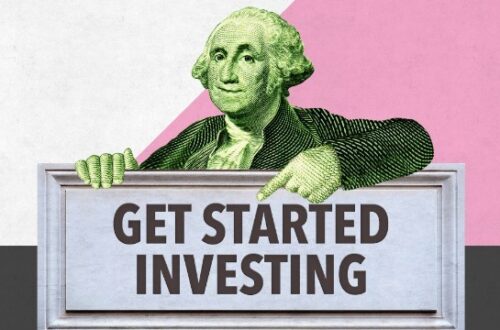
The UK Investment Landscape in 2025: Realities, Global Contrast, and Founder Advice
Despite signs of recovery across the global economy, the UK investment landscape in early 2025 remains a paradox. There is no shortage of ambition among startups or sophistication among funds — yet capital feels harder to come by than it should. And while the US, Middle East, and parts of Europe surge ahead with record investment rounds, UK founders often find themselves caught between potential and policy.
So where exactly does the UK stand — and what should founders do to stay ahead?
A Shifting Global Context
In the US, markets are showing renewed confidence. After a volatile 2022–23, the past year has seen a rebound in IPOs, large VC rounds, and a new wave of AI, healthtech, and climate-focused investment. PitchBook data shows US VC investment hit $170 billion in 2024, up 15% from the previous year, with mega-rounds (over $100m) back in fashion.
Meanwhile, the Middle East continues to flex its sovereign wealth muscles, with funds like Mubadala and PIF increasing allocations to tech, infrastructure, and sustainability sectors. In Europe, Germany and France have doubled down on industrial innovation, channeling public funds into cleantech, automation, and deep science.
Against this backdrop, the UK has shown mixed signals. While total VC investment in 2024 stood at £21 billion — making it the leading destination in Europe — that figure masks a slowdown in late-stage activity and a growing reliance on foreign capital to close growth rounds.
Headwinds at Home
Several issues are dragging on UK investment momentum:
- Policy Uncertainty: From changes to R&D tax credits to wavering net-zero commitments, policy shifts have left founders and investors second-guessing the long-term direction of government support.
- Exit Environment: The London Stock Exchange continues to underperform as an exit venue. Many tech firms are eyeing NASDAQ or exploring M&A instead of domestic IPOs.
- Productivity and Talent Concerns: UK productivity growth remains below pre-2010 levels, and while talent is abundant, it’s often concentrated in London and a handful of regional hubs.
Recent global developments aren’t helping. The US’s move to impose higher tariffs on Chinese EVs and other goods has added uncertainty to trade flows and the global supply chain. At the same time, geopolitical tensions and fluctuating interest rates are making some investors more risk-averse — especially in sectors like sustainable energy, where BP and other large players are retreating from long-term climate targets to refocus on near-term returns.
Why Founders Must Adapt
For UK founders, these dynamics can be frustrating — especially those building globally relevant, high-growth businesses. Seed funding is still available, especially through EIS and SEIS-backed angels and microfunds. But the leap from early traction to scale is growing harder, with less domestic capital available for Series B and beyond.
So what can founders do?
1. Build for Global from Day One
UK startups are increasingly looking abroad earlier — incorporating in the US, exploring funding from Middle East-based VCs, or partnering with multinational corporates to unlock scale. The lesson is clear: international proof points carry weight, and your funding strategy should reflect the global nature of your ambition.
2. De-risk the Story
Whether you’re pitching to a London family office or a California VC, investors want clarity. That means strong financial controls, a well-articulated path to profitability, and credible plans for scaling without burning too hot. Founders who present a “de-risked” narrative — across team, tech, and traction — will have an edge.
3. Engage with Policy
Too many early-stage founders see public policy as irrelevant. But whether it’s green subsidies, digital trade agreements, or changes to employee share scheme taxation, the rules are changing fast — and often create competitive advantages for those who understand them.
4. Focus on Resilience, Not Hype
While AI continues to dominate headlines, the best investors are looking for fundamentals: strong customer retention, gross margin discipline, and real-world defensibility. This applies across sectors — from manufacturing to fintech to renewables.
UK Still Has Core Advantages
The UK is not in decline. It still ranks first in Europe for venture capital raised. London remains a magnet for international capital, and regional cities like Manchester, Bristol, and Edinburgh are producing genuinely world-class companies.
The country’s university spinout ecosystem is thriving, with over £2.5 billion raised in 2024 alone. Sectors like advanced materials, biotech, and quantum computing offer deep technical moats — exactly the kind of complexity long-term investors seek.
Moreover, UK VCs are becoming more founder-focused, more operationally savvy, and better capitalized than ever before. New funds like Phoenix Court’s £500m vehicle and impact-driven investors like Future Planet Capital are proving that there’s room for ambition and scale on home soil.
Conclusion: Founders Must Navigate — and Shape — the Market
Founders today face a paradox: they’re building in a country with extraordinary talent, rich networks, and a mature financial sector — but one that isn’t always keeping pace with global capital trends. The onus is on entrepreneurs to both adapt to these conditions and shape them.
That means working with strategic investors, pushing for policy alignment, and not being afraid to go global. It means embracing scale but never losing sight of substance. And it means treating the first 100 days after funding not as a breather — but as a launchpad.
In this new era of capital discipline and cross-border competition, the winners will be those who combine British ingenuity with global ambition.





